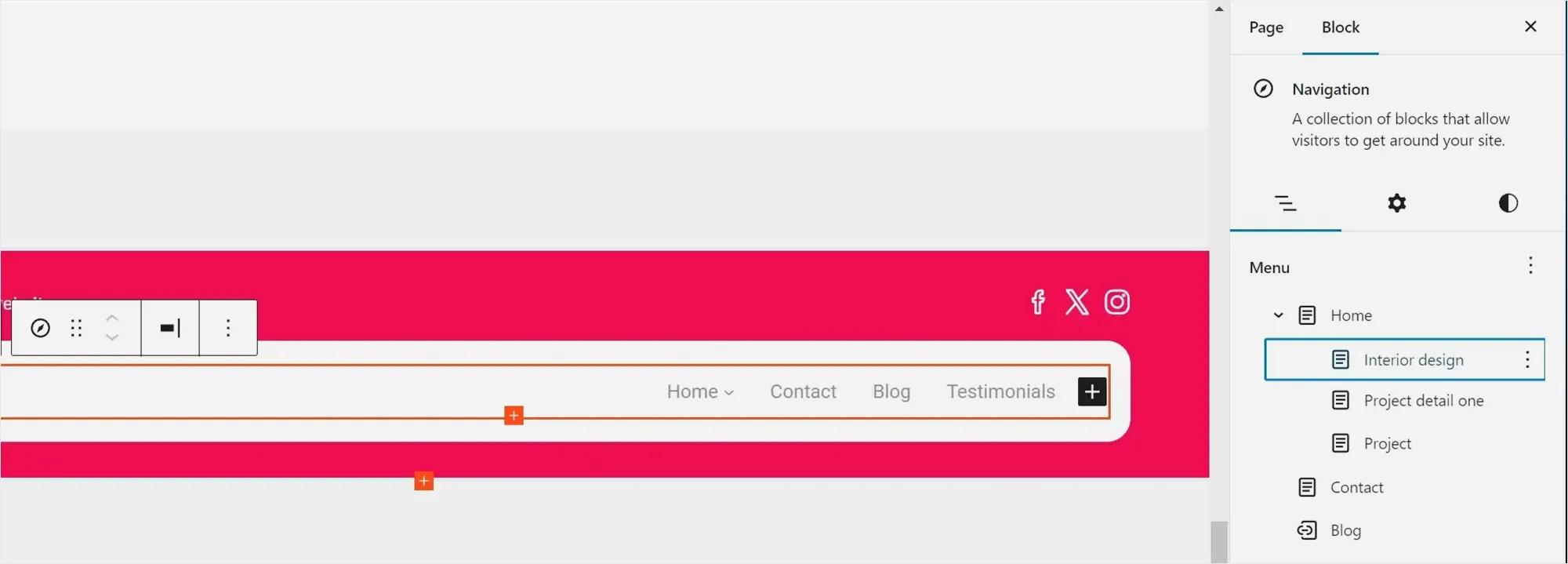Finding the best website hosting for WordPress
Try MaxiBlocks for free with 500+ library assets including basic templates. No account required. Free WordPress page builder, theme and updates included.

Updated 15th May 2025
Choosing the best website hosting for your WordPress site
What to look for and what to avoid when selecting a reliable hosting provider
Finding the right hosting for your WordPress website is a step that can impact everything from site speed to security. With many providers available, it helps to focus on features tailored to WordPress and to avoid common hosting pitfalls. Understanding what matters most will make the decision easier and lead to better long-term results.
Look for WordPress-specific hosting features
Not all hosting is created equal, especially when it comes to WordPress. Choose a provider that offers features built specifically for the platform. One-click installation simplifies the setup process, allowing you to launch your site quickly without technical headaches. Automatic updates for the WordPress core and plugins help keep your site secure and up to date without manual intervention.
Security is another key area where WordPress-focused hosts stand out. Look for features such as firewall rules designed to block WordPress-specific threats, malware scanning, and DDoS protection. These added layers of security can help prevent common vulnerabilities and save time dealing with potential issues.
Prioritise performance and uptime reliability
Performance and uptime are essential for delivering a smooth, dependable experience to your visitors. A quality host should offer fast page load speeds and an uptime guarantee of 99.9% or higher. Consistent uptime ensures your site is always available, reducing the risk of losing traffic or damaging your reputation.
Downtime can lead to missed opportunities, particularly for business or e-commerce websites. In addition to uptime, check whether the provider offers caching, content delivery network (CDN) support, and scalable resources to handle traffic spikes. These features help ensure your WordPress site performs well under pressure and provides a seamless experience for your users.

Key hosting features for a secure and scalable WordPress site
Ensuring long-term growth and protection with the right hosting provider
As your WordPress site evolves, your hosting should be able to adapt with it offering the resources needed to support expansion while keeping your content and users secure. Scalability and strong security features are essential for maintaining performance and peace of mind as your website grows.
Scalability for future growth
Choosing a hosting provider with scalable infrastructure means your website can expand without disruption. Whether you’re increasing traffic, publishing more content, or launching new services, a scalable host allows you to upgrade bandwidth, storage, or server power without having to migrate to a new platform. This flexibility is especially important for WordPress sites planning to grow steadily, such as online stores, blogs, or membership platforms.
A good host will offer flexible plans or cloud-based resources that can be adjusted as your needs change. This prevents performance bottlenecks and gives you the freedom to focus on content and audience development without worrying about technical limitations.
Strong security features for WordPress protection
Security is a must-have when selecting a hosting provider. Look for features like free SSL certificates, which encrypt data transfers and are essential for user trust and search engine rankings. Reliable hosts should also offer automated daily backups, allowing you to restore your site quickly if something goes wrong.
Additional protections such as malware scanning, brute force detection, and defence against DDoS attacks help keep your site safe from threats. These built-in security tools reduce the need for third-party services and provide an essential safeguard for both your content and your visitors. Prioritising security in your hosting choice gives you confidence that your site is protected as it grows.
Subscribe to our newsletter
Considerations when choosing the best WordPress hosting provider
Comparing support, pricing, tools, and infrastructure for a complete hosting solution
Finding the right hosting for your WordPress site involves more than just performance and uptime. Factors like customer support, pricing transparency, user reviews, developer tools, and data centre locations can all impact your long-term experience. Evaluating these areas ensures you’re selecting a host that supports your needs now and as your site grows.
Reliable customer support around the clock
When something goes wrong with your site, responsive and knowledgeable support is essential. Look for hosting providers that offer 24/7 support through multiple channels, including live chat, email, and phone. Equally important is the team’s familiarity with WordPress having access to support staff who understand the platform can speed up issue resolution and reduce frustration.
Fair and transparent pricing
Price is always a consideration, but it’s important to look beyond the cheapest option. Compare plans carefully, watch for hidden fees, and evaluate what’s included such as SSL certificates, backups, and email hosting. The best value often comes from providers that offer a strong feature set at a fair price. Investing slightly more in a reliable host can lead to better performance and fewer issues over time.
User reviews and testimonials
Real user feedback offers insight into how a hosting provider performs in everyday use. Look for reviews that mention customer support quality, uptime reliability, speed, and ease of use. Common complaints or recurring issues can signal red flags, while consistent praise can confirm you’re making the right choice. Testimonials and third-party review platforms can help you build a clearer picture of what to expect.
Developer tools for more advanced control
If you manage or build sites regularly, developer tools can make your work much more efficient. Look for hosting that includes features like staging environments for safe testing, Git integration for version control, and SSH access for secure file management. These tools are especially valuable for agencies, freelancers, and advanced users looking to streamline development workflows.
Data centre locations for global performance
The physical location of your hosting provider’s data centres affects how quickly your website loads for users in different regions. Hosting your site closer to your main audience improves speed and user experience. For global sites, a host with multiple data centres worldwide or access to a content delivery network (CDN) ensures faster, more consistent performance across regions. This can boost both visitor satisfaction and SEO performance.
By considering these final elements along with core features like security, scalability, and uptime you’ll be well-equipped to choose a WordPress hosting provider that delivers strong performance, flexibility, and long-term reliability.

Hosting features to evaluate for a smooth WordPress experience
Balancing usability, reliability, and performance in your hosting choice
When selecting the best website hosting for WordPress, the small details can have a big impact. Beyond security, speed, and scalability, factors like the user interface, backup policies, and load times play a critical role in your day-to-day experience and long-term success. Being mindful of these elements and common pitfalls can help you make a confident and informed decision.
User interface: look for simplicity and clarity
A clean, intuitive control panel is essential, especially if you’re not highly technical. Hosting providers that offer a straightforward dashboard (such as a custom panel or a user-friendly version of cPanel) make it easier to manage tasks like WordPress installation, backups, email setup, and DNS settings. A well-designed interface saves time and reduces frustration, allowing you to focus on your site rather than struggling with system controls.
Avoiding common hosting pitfalls
Don’t be caught off guard by restrictive policies or misleading pricing. Always read the terms of service and check details like resource limits, bandwidth restrictions, cancellation rules, and refund conditions. Also, avoid choosing a provider solely because it’s the cheapest lower prices often mean compromises in performance, support, or security. Focus on overall value and long-term reliability instead of short-term savings.
Backup policies: protect your content
Regular and reliable backups are a non-negotiable feature. Look for hosts that offer automated backups (ideally daily) and an easy way to restore your site in case of problems. Whether it’s human error, a failed update, or a security breach, quick recovery options help minimise downtime and data loss. The best providers include backup tools directly in their control panel for easy access.
Load time: prioritise speed and efficiency
Website speed affects everything from user engagement to search engine rankings. A good host should offer fast server response times, caching features, and data centres near your audience. Before committing, check load times using tools like GTmetrix or Pingdom, or see if the provider offers a trial period. Hosting that prioritises performance ensures your site loads quickly, which helps keep visitors engaged and improves your SEO.
By evaluating these last few details alongside earlier considerations like support, uptime, security, and scalability you can confidently choose a WordPress hosting provider that delivers on performance, ease of use, and long-term value.
Build like a pro
Essentials for a reliable and growth-ready WordPress site
Planning for storage, compatibility, and future expansion with confidence
When choosing the best website hosting for WordPress, it’s important to think beyond your immediate needs. As your site evolves, your hosting must support increased traffic, growing content, and new functionality. Key factors like storage, compatibility, SLAs, and e-commerce support all play a role in making sure your site performs reliably now and scales easily in the future.
Storage and bandwidth flexibility
Your hosting plan should offer enough storage and bandwidth to accommodate your current site while leaving room to grow. Limited resources can lead to slow performance, overage fees, or even downtime if your site suddenly experiences a traffic spike. Choose a provider with generous or scalable resource allocations so you can easily upgrade as needed especially if you host rich media, run an active blog, or manage a growing online shop.
Compatibility with plugins and themes
Not all hosting environments handle WordPress plugins and themes equally well. To avoid conflicts or technical issues, make sure your provider offers a WordPress-optimised environment with updated PHP, MySQL, and other relevant technologies. This ensures smoother operation of popular plugins, themes, and custom features without compromising your site’s stability or speed.
Understanding the Service Level Agreement (SLA)
A detailed SLA outlines what the hosting provider guarantees in terms of uptime, support availability, and issue resolution timelines. It’s your reference point for what to expect and what compensation you may receive if service levels fall short. A transparent SLA gives you peace of mind and ensures the host is accountable for the reliability they promise.
Planning for future growth
A good hosting provider should support your long-term goals, not just your current site size. Look for services that offer easy plan upgrades, additional storage, and the ability to scale bandwidth. Choosing a flexible provider now means you won’t have to deal with disruptive migrations later as your business, blog, or e-commerce site grows.
E-commerce support for online stores
If you’re setting up a shop, make sure your host supports essential e-commerce functionality. This includes compatibility with WooCommerce or other shopping platforms, secure payment processing, SSL certificates, and tools for handling traffic surges during promotions or sales. A host that specialises in e-commerce can offer additional speed and security enhancements, improving both your store’s performance and customer trust.
By taking all of these final elements into account, you’ll be better equipped to choose a WordPress hosting provider that’s secure, flexible, and built to grow with your site. Whether you’re running a blog, business site, or online store, a well-rounded host provides the stability and features you need to succeed.

Final thoughts and key takeaways
When choosing the right tools and services for your WordPress website, it’s essential to consider factors such as design flexibility, ease of use, and available features. Themes like MaxiBlocks offer a robust solution with customisation options that help create a professional, dynamic site without the need for advanced coding skills. By keeping these points in mind, you can ensure your website is not only visually appealing but also functional and easy to manage.
For those seeking an all-in-one solution that combines powerful design elements with flexibility, MaxiBlocks is a great choice. It’s designed to simplify the building process while delivering exceptional results, making it easier for you to create a site that aligns with your vision and goals.
Finding the best website hosting for WordPress is crucial for ensuring your site runs smoothly and securely. Whether you’re working with a freelance WordPress designer or a WordPress web design agency, reliable hosting forms the backbone of any successful site. Businesses looking to create a website using HTML or through WordPress can benefit from services offered by a WordPress web design company or a dedicated WordPress web design studio. Beyond design, WordPress support and WordPress maintenance ensure long-term performance. As you evaluate your needs, consider options such as WordPress website development services or consult a WordPress website development company for expert insights. If you are unsure how much to budget, resources like how much WordPress website design costs and the WordPress website design cost guides will help.
It’s also helpful to understand what makes a good WordPress web designer or how to hire a WordPress designer. Whether you’re seeking WordPress services or looking to improve your site’s visibility with WordPress SEO optimisation and Google Analytics integration, choosing from the best website hosting for WordPress ensures you build on a solid foundation. Don’t forget to explore WordPress design services, tips on designing your own WordPress website, and the WordPress website designer guide for professional support. For those seeking top quality, best WordPress design examples and advice on WordPress web design services are great resources. Finally, enhance your site with recommended WordPress plugins and keep improving by optimising WordPress performance as your site grows.
Discover tools and layouts used by the best web designers
Explore expert tips, tools, and creative examples that define today’s best web designers.
FAQs – Best website hosting for WordPress
What makes a hosting service the best for WordPress?
The best hosting services for WordPress offer fast performance, strong security, reliable uptime, WordPress-specific support, automatic updates, daily backups, and easy scalability as your site grows.
Should I choose shared or managed WordPress hosting?
Shared hosting is more affordable but comes with limited resources. Managed WordPress hosting is more expensive but offers better performance, security, and hands-on support tailored to WordPress websites.
What is managed WordPress hosting?
Managed WordPress hosting is a service where the host takes care of technical tasks like updates, backups, caching, and security, allowing you to focus on your content and business.
How important is server speed for WordPress hosting?
Very important. Fast server speeds improve user experience, reduce bounce rates, and positively impact SEO. Look for hosts with optimised infrastructure and caching tools.
What uptime should I expect from a quality host?
A reputable WordPress host should offer at least 99.9% uptime. This ensures your website stays online and accessible to visitors nearly all the time.
Are free WordPress hosting options reliable?
Free hosting is usually not recommended for serious websites. It often lacks essential features like security, performance, support, and custom domain use.
Do WordPress hosts include email services?
Some do, but not all. Check whether email hosting is included or if it needs to be added through a third-party service like Google Workspace or Zoho Mail.
What is the best hosting for beginners?
Beginner-friendly hosts like Bluehost, SiteGround and Hostinger offer user-friendly dashboards, one-click WordPress installs, and helpful customer support.
How much does WordPress hosting cost?
Prices range from around £2 to £30+ per month. Shared hosting is cheaper, while managed WordPress hosting can cost more but provides extra features and better performance.
Can I switch hosts easily?
Yes, most hosting providers offer free migration or easy-to-follow tools to move your WordPress site from one host to another.
Does hosting affect SEO?
Yes, hosting influences SEO through page speed, uptime, and security. A fast, reliable host can improve your search rankings.
Do I need WordPress-specific hosting?
Not necessarily, but WordPress-specific hosting often includes optimisations that improve performance, simplify management, and enhance security for WordPress sites.
What kind of support should I expect?
Top hosts offer 24/7 customer support via live chat, email or phone, with staff trained specifically to help with WordPress-related issues.
Can I host multiple WordPress sites on one plan?
Some hosting plans support multiple websites, depending on the tier you choose. Be sure to check limits on traffic, storage, and site installs.
What security features should a good host offer?
Look for features like free SSL certificates, firewalls, malware scanning, daily backups, and automatic updates to keep your WordPress site secure.
Do hosting providers offer backups?
Many WordPress hosts include daily or weekly automated backups. Make sure you can easily restore your site if something goes wrong.
Is cloud hosting good for WordPress?
Yes, cloud hosting offers excellent scalability and reliability, making it a great option for high-traffic or growing WordPress websites.
What if I outgrow my current hosting plan?
The best hosts offer easy scalability, allowing you to upgrade resources or switch to a VPS or dedicated server as your site grows.
How do I choose the best WordPress host for my needs?
Consider your budget, technical skills, expected traffic, required features, and level of support. Compare plans, read reviews, and check for WordPress-specific tools and performance benchmarks.
WordPress itself
Official Website
wordpress.org – This is the official website for WordPress, where you can download the software, find documentation, and learn more about using it.
WordPress Codex
codex.wordpress.org/Main_Page – This is a comprehensive documentation resource for WordPress, covering everything from installation and configuration to specific functionality and troubleshooting.
WordPress Theme Directory
wordpress.org/themes – The official WordPress theme directory is a great place to find free and premium WordPress themes. You can browse themes by category, feature, and popularity.
maxiblocks.com/go/help-desk
maxiblocks.com/pro-library
www.youtube.com/@maxiblocks
twitter.com/maxiblocks
linkedin.com/company/maxi-blocks
github.com/orgs/maxi-blocks
wordpress.org/plugins/maxi-blocks

Kyra Pieterse
Author
Kyra is the co-founder and creative lead of MaxiBlocks, an open-source page builder for WordPress Gutenberg.
You may also like

